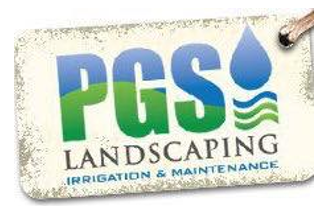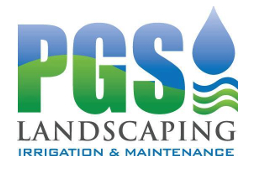FAQ

PGS Landscaping have received many questions over the years regarding Landscaping. We have tried to pick the most frequent questions to post on our website.
Click on any question below and the answer will expand.
If you don’t find the answer below, please give us a call or email us and we will be happy to help!
Frequently Asked Questions
A: A landscape design will give you and the landscape contractor a clearer picture on what the completed project will look like when it is complete
Yes. Nearly all our customers recommend us to their family, friends, or co-workers. If you know of someone looking for high quality landscaping, please refer them to us. We will gladly work with them on their landscape projects.
A: When planting always take into consideration the plant’s needs. The water schedule is very important. Depending on the time of year you will need to water more or less. Plant stress can occur quickly by under or over watering your newly installed plant material.
A: Mulch is a garden essential because it helps the soil retain moisture and keeps weeds from germinating.
Any time you plant, add a layer of mulch to retain moisture and prevent weeds. Keep the mulch away from the base of the plant. Also spread mulch over any bare spots. Keep in mind that you have to renew mulch, because worms will eat it and it will gradually be worm away or break down into the soil.
Your grass may not actually die in the winter months. Sometimes, grass can just become dormant, which means that it protects itself from extreme temperatures by turning brown to conserve water.
Those tiny little holes in your plants are unsightly, but you don’t want to use pesticides because they can harm your plants and the environment. Thankfully, there are a few natural solutions to the ever-enduring pest problem. Tossing your old eggshells into your garden can prevent pests from eating your plants, and they also add nutrients to the soil. Sprinkling cayenne pepper on the soil as needed is a great way to keep bugs and other pests away too.
Ever seen those little rubber hoses poking up out of the soil in gardens? That is a drip irrigation system. Small holes are made in these tubes, allowing water to drip out. This ensures the water supply is closer to the roots and soil. Plus, drip lines are less likely to be trampled on. Sprinkler systems, as you probably know, spray water into the air, which is then absorbed into the ground. The type of irrigation system you need will depend on the type of plant or grass you are growing. Sprinkler systems work well for grasses and sod, while drip lines are better suited for garden plants.
A. We use various vendors. Generally all materials are supplied locally unless otherwise required.
A. We will always try to service your lawn on the same day each week; however, weather can delay our crews. During the beginning of the year and the end of the year, the schedule may be adjusted due to the needs of the turf. Twice weekly mowing is also available for accounts that require this service.
